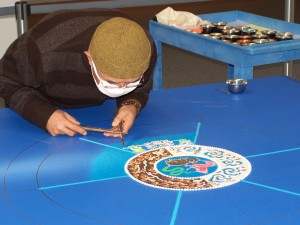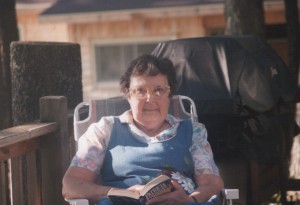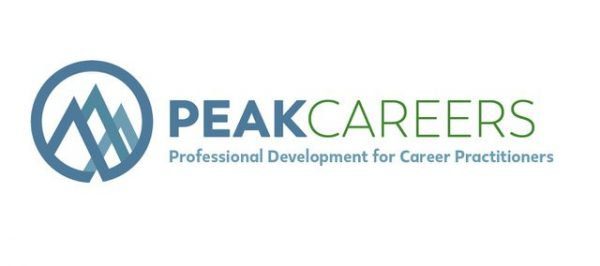Less is best in most cases. We live with a tsunami of information and all we often need is a beach and an umbrella. Malcolm Gladwell in Blink says, “We live in a world saturated with information….The key to good decision making is not knowledge. It is understanding.”
So how do we take this enormous amount of information and turn this into understanding? One way to do this is to embrace the “less is best” motto and it will leave you with the clues to understanding. Malcolm Gladwell speaks to this in his book and I talk about “trusting your instincts”. (See 3rd bullet point in this blog).
When working with college students on their resume, I say that every word on this needs to count. To have a purpose. You do not need to tell me that 207-555-5555 is a “cell phone” or JimPeacock @Peak-Careers.com is an “email”, I know what it is. Use bullet phrases, not sentences in your experience area because I am skimming this document, not reading it. Make this resume shorter, meaningful, and cleaner, so I can understand you.
When working with mid-life career changers on their LinkedIn profiles I say “How can you say who you are and what you want to do in 180 characters in the tag line area?” And “can you write a two paragraph summary section that expands on your tag line?” I simply will not read a 5 paragraph summary section. Less is best.

Focus your thinking. Each word must be important, like each grain of sand in a sand mandalas. Can you write this so I understand you? I simply do not need to know everything about you, but I do want to understand you.
Twitter continues to challenge me with the concept of messaging in < 140 characters. Not just messaging but actually saying something understandable. But it can be done. This is a direct quote from Rich Grant’s blog. “Thousands of words have been written about resumes and tips to make your resume stand out. But, all you really need to know was expressed in a tweet Monday night by Mark Babbitt, @MarkSBabbitt, founder and CEO of YouTern. Someone asked Mark during the #InternPro chat what were the characteristics of a good resume… “what separates the good from the bad?”
“Well-communicated achievement statements that go right to solving the problem of that specific employer,” tweeted Mark. (less than 100 characters).
Yep, less can be best.
We often feel like we need to pack more into our lives. I would argue more quality and less quantity. I remember years ago traveling from Maine to Michigan visiting my folks with my family of four at  Christmas. While home we saw my cousins, aunts, uncles, friends, brothers, and sister, and it was awesome. But when I returned to Maine, I realized that I never even sat down and talked to mom more than 2 or 3 minutes the entire time. Never did that again. We visited at non-holiday times in the future. Quality beats quantity in understanding what is important.
Christmas. While home we saw my cousins, aunts, uncles, friends, brothers, and sister, and it was awesome. But when I returned to Maine, I realized that I never even sat down and talked to mom more than 2 or 3 minutes the entire time. Never did that again. We visited at non-holiday times in the future. Quality beats quantity in understanding what is important.
Here are 3 tips to embrace the “Jim Peacock less is best” theory.
1. Find people who already aggregate the information you want. Someone told me that early on about Twitter and I have indeed found people who blog or post other blogs that are interesting to me. I found the same thing in LinkedIn and also in my networking in general. It is not about having more contacts, it is about having key contacts.
2. Take time daily to reflect. Stop. Just because you are busy doesn’t mean you are productive. (see my blog on Taking 15 minutes)
3. Say no occasionally. You do not have to agree to do everything for everyone. Prioritize your day and your week. Do what is important to you and spend time on these important tasks or people. It’s ok really. No means you love something, you have priorities and you are willing to set limits.
What else can you do to help sift through the “noise” of everyday life and help yourself understand what is going on around you?
———————————————–
Jim Peacock is the Principal at Peak-Careers Consulting and writes a monthly newsletter for career practitioners. Peak-Careers offers discussion-based online seminars for career practitioners focused on meeting continuing education needs for CCSP, GCDF and BCC certified professionals as well as workshops for career practitioners and individual career coaching.
Sign up here to receive my TOP 10 TIPS WHEN WORKING WITH AN UNDECIDED PERSON. You can also receive the career practitioners newsletter which includes a variety of career topics, industry news, interesting events, and more.



Your statement, “Just because you are busy doesn’t mean you are productive”, immediately reminded me of the quote I keep on my desk by James Ling, “Don’t tell me how busy you are, tell me how much you get done.” I really need this constant reminder! Great resume tips too. Thanks!
Thanks Jenny. Quotes are wonderful reminders of important things we need to keep in front of us. It is the balance in life that is important.
Jim…Great post! I love the distinction between wanting to understand someone and knowing everything about them. So many candidates want hiring managers to know EVERYTHING about them; the understanding of their value gets lost in the telling.
Scott, makes me think of a funnel and pouring the water in it…. even a funnel can overflow 🙂
Jim, this is a great post. It provides really important guidance around a topic that can totally consume me – too much information! I specially love the reminder that every word on a resume has to be hard-working. The Importance of stressing quality, versus quantity, is so important. We have been talking about this for years, but in fact I think we are more challenged with how to handle the abundance of information than ever before.
Yes Leigh, it feels like a tsunami of information for sure and unfortunately much of it is fluff. Learning how to sift through the garbage (quantity) and find what you need (quality).
Re: resume’s. Yeh I’m always telling people that EVERY word has to count and have value. Don’t use 10 words when 5 will do it.